Chess is a game that requires a lot of focus, practice, and hard work.
When a player starts learning the game, they go through a process that includes knowing the names of the chess pieces, how they move, the aim of the game, and a bunch of chess rules amongst others.
In learning the game however, you’ll encounter challenges that will pose some difficulties in your quest to improve at chess. It doesn’t matter whether you’re a beginner, intermediate, or advanced player – these challenges are universal.
Unfortunately, these same challenges can cause you to lose a lot of games, and losing is the one thing chess players hate the most.
This article describes 12 steps you can take to overcome these difficulties and finally “supercharge” your chess growth.
12 Steps To Getting Better at Chess
- Improve Your Tactics
- Have An Opening Repertoire
- Focus On Rapid Development
- Study The Endgame
- Record Your Games
- Study Positional Chess
- Analyze Your Games
- Practice Online
- Play In Local And International Tournaments
- Study Chess Materials
- Join Chess Improvement Programs
- Use Chess Training Systems
Improve Your Tactics
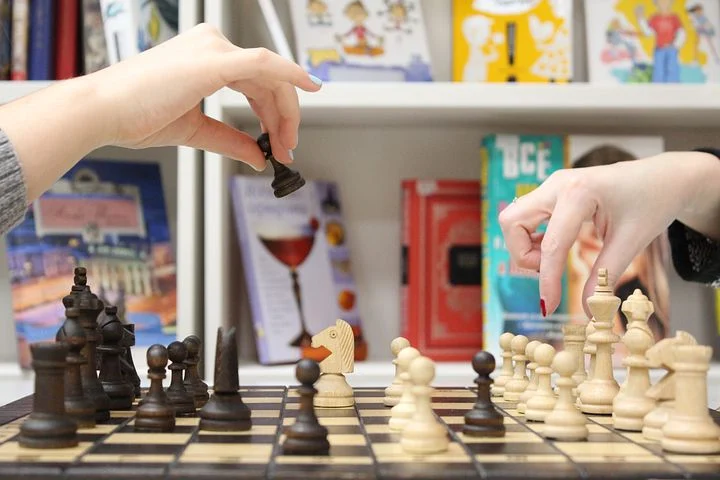
Chess is a game of strategy. It requires clever planning and precise execution. Therefore, an important tip on bettering your game fast is to improve your tactical ability.
More often than not, tactics are the deciding factor in a chess game. Without tactics, winning chess games would be impossible.
Tactics are a sequence of moves that make one or more immediate threats; these threats may include a check, the threat of a piece capture, or a sequence of moves that will lead to a checkmate.
Tactics may also be defensive; you may employ tactics to get a draw out of a seemingly lost position or protect a threatened piece. Tactics may also be in the form of prophylaxis.
Some helpful tips on how to get better at chess tactics are:
- Study puzzles aimed at improving tactics e.g. checkmate puzzles.
- Look for common tactical motifs like back-rank weaknesses, pins, forks, skewers and x-ray attacks in your games.
- Analyze your games with the use of chess engines.
We have some resources to help with these:
- 5 Of The Best Chess Puzzles Out There (What We Love)
- How To Analyze Your Chess Games in 9 Steps
- Understanding These 12 Chess Tactics Will Make Chess Easy
Improving your tactical ability is a sure way to get better at chess. Indian Grandmaster and chess legend Viswanathan Anand emphasized the importance of chess tactics.
In his words, “Chess is 99 percent tactics. If you don’t pay attention to the tactics, no strategy you devise will fetch you rewards.”
Have An Opening Repertoire
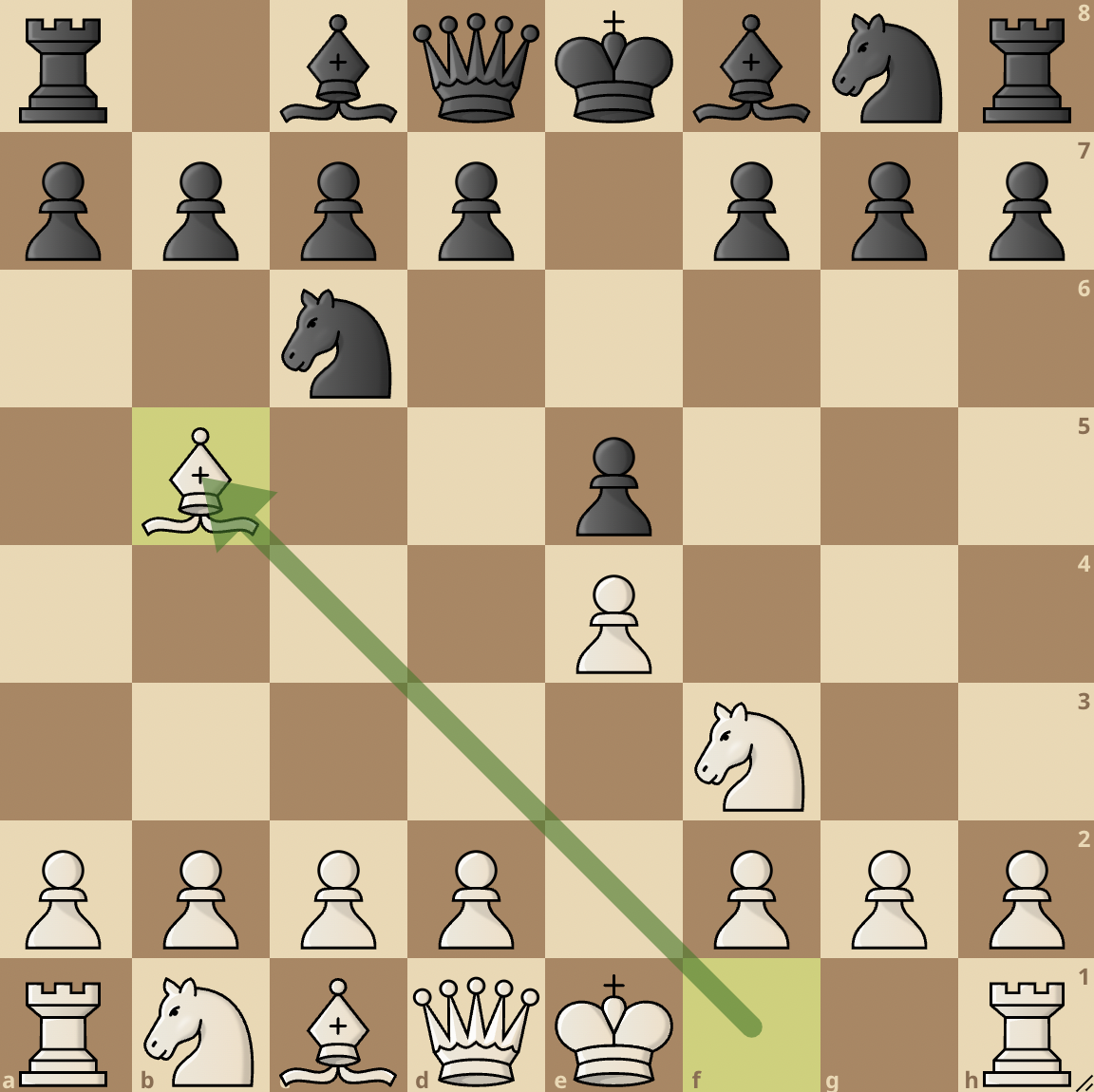
A chess game is divided into 3 stages: the Opening, Middlegame, and Endgame.
The opening is the beginning of a chess game. It usually consists of the first moves a chess player makes up until the moment castling occurs.
There are different ways a chess player can play the opening, and different types of openings exist. Therefore, it’s important to have at least two or three different openings in your repertoire.
Here, you can find some excellent openings for the black pieces and the white pieces.
Once you have chosen the openings you would like to add to your arsenal, the next thing is to study them.
You can do this with the help of chess books and other chess materials like chess engines and videos. These materials will go a long way in ensuring you understand how to get better at chess openings.
Another important thing to note when building your opening repertoire is to avoid memorizing openings. Aim to understand the principles.
Memorizing openings like the two-move-checkmate opening may pose a problem if your opponent does not play according to plan.
Focus On Rapid Development
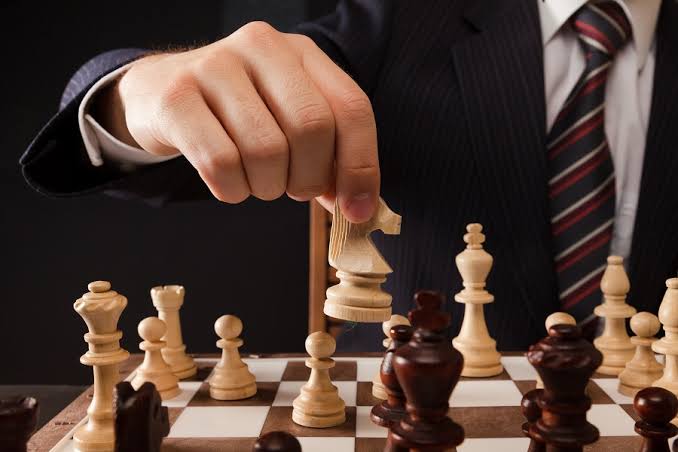
If you have ever gone through a game played by strong chess players, you will notice that immediately after the game commenced, they quickly brought out their pieces and put them on the best squares available.
This is known as the principle of Rapid Development. This means that you should always aim to bring your pieces into action as soon as possible.
A player with more pieces involved in the attack is more likely to win the game than a player with their pieces on the starting squares.
One reason the chess legend Paul Morphy was so good was that he understood the principle of rapid development better than other chess players of his time.
See this famous model game he played against Duke Karl / Count Isouard in Paris 1858. Annotations by chessgames.com.
Touch the moves or move the board around for a better experience.
Study The Endgame
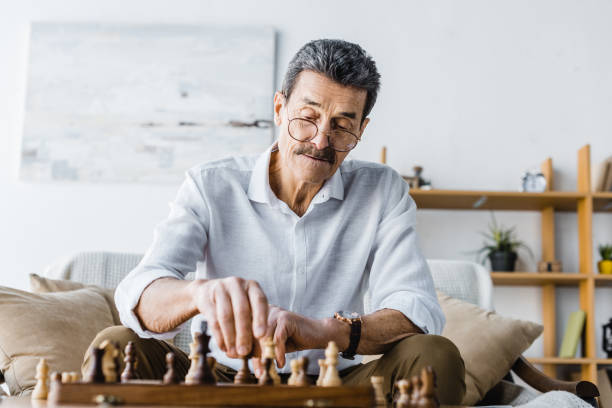
The endgame is the final part of a chess game which you must understand to get better at chess.
In the endgame, there are very few pieces left on the board. The pieces that often make it to the endgame are usually the pawns and in some cases, the bishops, knights, and rooks.
The endgame is very technical, as one move could decide whether a player wins or loses the game.
Understanding endgames will greatly improve your chess ability as you can easily convert advantages like pawn structure into a win.
Studying the endgame will also help you know how to get a draw out of seemingly lost positions. An example is the Philidor position.
Another importance of studying the endgame is that it helps prevent blunders that will cost you the game.
Former world champion Jose Raul Capablanca was a master of endgames.
He stressed that the endgame must be carefully studied if a player wants to improve in chess.
In his words, “In order to improve your game, you must study the endgame before everything else, for whereas the endings can be studied and mastered by themselves, the middle game and the opening must be studied in relation to the endgame.“
We have some beginner-friendly resources to help you with your endgame study:
- Chess Endgames: The Great Element Of Chess Mastery
- 5 Endgame Concepts You Must Know to Play Better Chess
Just as you should learn the basic ideas of the endgame, you should also be familiar with these checkmate patterns:
- 40 Checkmate Patterns Sure To Win You Games
- How to Checkmate With Two Rooks? A Beginner Friendly Guide
- Can You Checkmate With Two Knights?
- How To Carry Out The Queen And King Checkmate in Chess
- How To Play The Two Bishop Checkmate
- Learn The Bishop And Knight Checkmate
Record Your Games
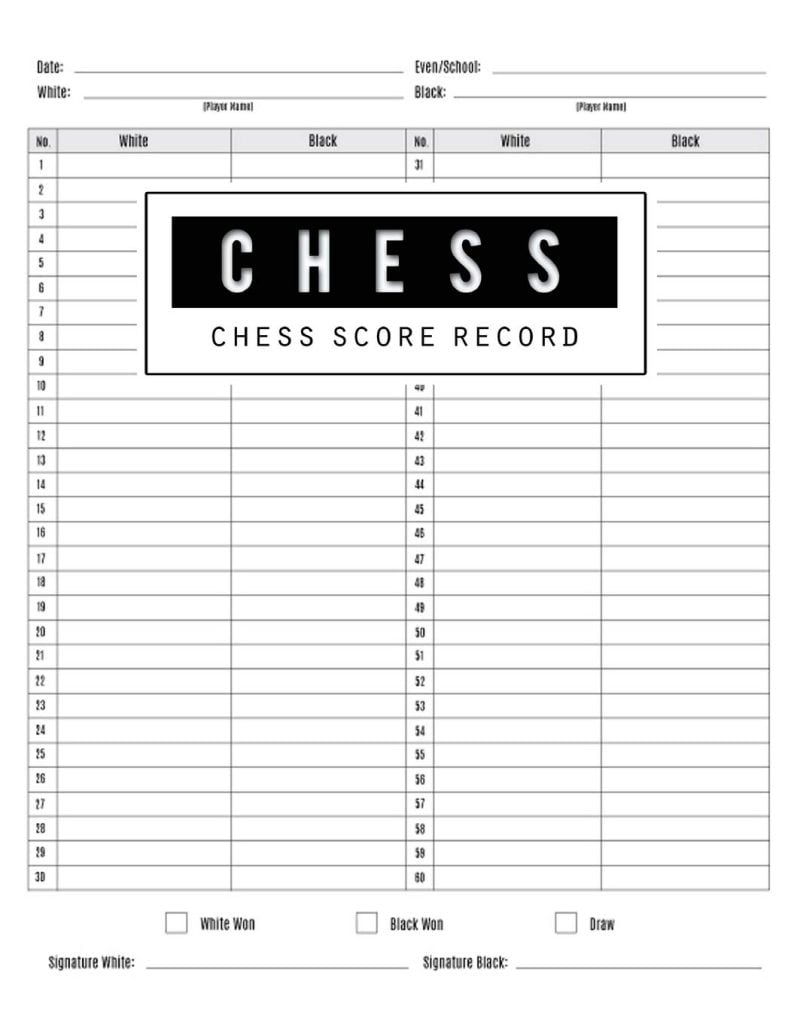
A Chinese saying goes thus, “The palest ink is better than the best memory.” This means that it is easier to reference things written down than trying to recall them offhand.
This saying is not lost in chess. It is very important to record all the games you have played.
Recording your games makes it easy for future reference and analysis.
Suppose you have watched a world chess championship, a candidates’ tournament, or any tournament with long-time controls, you will notice that the players always record their games on a recording sheet immediately after a move is played.
This shows that recording your games is still important, even at the highest level in chess.
However, recording games are not restricted to over-the-board chess alone; you should also record your games when you play online.
When recording your games, you should make use of chess notations. Recording your chess games is a very important tip to improve at chess, so start recording your games today.
Study Positional Chess
One important aspect of chess that separates strong players from weak ones is the understanding of positional chess.
Positional chess is about knowing how to control what is happening on the chess board – using available spaces optimally, planning, strategizing, and knowing when to apply pressure.
Positional chess requires the ability to plan carefully.
The middlegame is where positional chess comes into play. You’ll need a very good understanding of positional chess to gain an advantage over your opponent hence the need to improve your chess middlegame.
Studying positional chess is also important if you want to learn how to get better at chess calculation.
Analyze Your Games
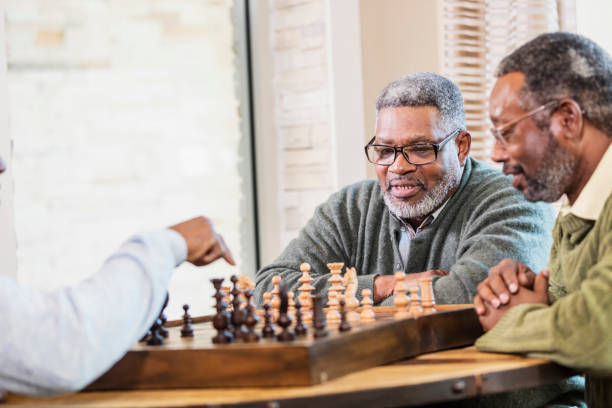
A lack of game analysis is a bad practice that limits your ability to improve at chess. Every top player analyzes their games after playing.
Analyzing your games helps you to spot the mistakes, inaccuracies, and blunders you might have made in the game.
Once you develop the habit of analyzing your games, your chess will start to improve, as you’ll spot your mistakes and try to avoid them in subsequent games.
You can analyze your games by going through them with a chess coach or stronger chess players as they will help point out your errors and teach you to play better moves.
You can also use chess engines, like Stockfish, to analyze your games. This will all help you to achieve that top player status in a short time.
Learn more from our article: How To Analyze Your Chess Games in 9 Steps
Practice Online
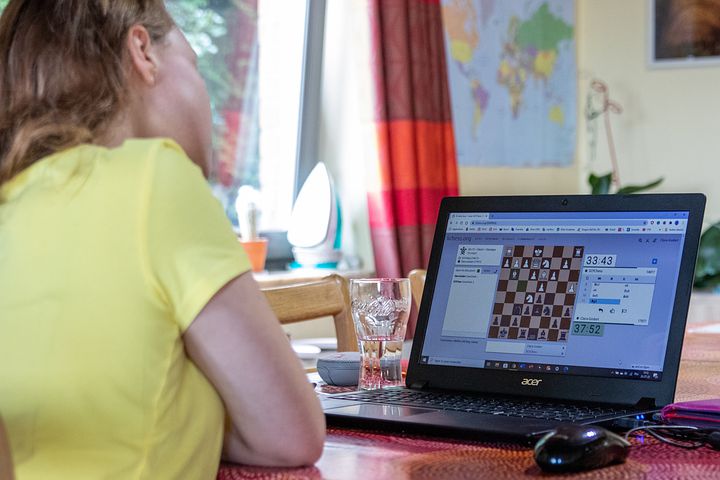
The best way to get better at anything is through practice. Practice, they say, makes perfect. This saying is not lost on chess. To improve your chess mastery, you have to practice regularly.
An excellent way of honing your chess skill is by practicing online. With apps like Lichess and chess.com, you have a wide variety of practice options.
These apps have features like online battles where you can play against chess players worldwide.
In addition, these chess software will help improve your tactical ability and quick thinking with faster time controls like Blitz and Rapid Chess.
Play In Local And International Tournaments
What’s a better way to figure out how to get better at chess than testing your skills against other opponents? Chess tournaments are the perfect place to judge how good your chess skills are.
Chess tournaments are competitions where different chess players of varying strengths and abilities come to test their skills against other opponents.
You will learn a lot from participating in chess tournaments.
You can attend local chess tournaments like the ones organized by chess clubs around you and also participate in international tournaments where you can play against very strong players.
An added incentive is that you can also win prizes while having fun and developing your chess skill.
Study Chess Materials
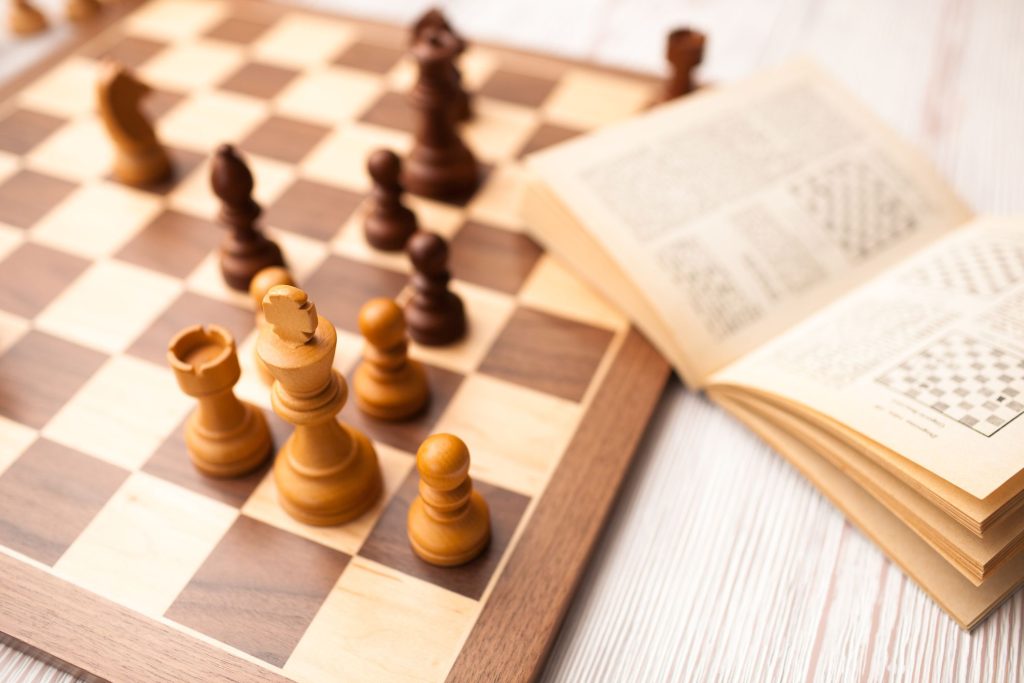
Chess materials are training tools that help develop your chess skill and ability.
More often than not, the difference between a beginner and a strong player is the number of chess materials they have studied.
Chess materials include chess books, chess videos, and articles. These materials will greatly improve your game as you can find everything you need to become an excellent chess player.
In terms of articles, ChessForSharks provides many useful resources. By simply browsing through the site, you’ll get a lot of information on different concepts like chess pieces movements, tactics, strategy, advice from experts, biographies of popular chess players etc.
To that end, we already researched the best books to help you improve. Do well to check these out:
- The Best Chess Books of all Time: From Beginner to Advanced
- 10 Of The Best Chess Books For Intermediate Players
Chess videos are your go-to if you’re not a book person and seem to learn better with audio and visual assistance.
You can access chess videos on YouTube, Facebook, Instagram, and Twitter.
There are thousands of videos available ranging from beginner to advanced levels. You can also access educational articles on chess websites.
We recommend that you check out ChessForSharks channel where you can learn a wide range of things like chess openings and popular chess games: https://www.youtube.com/@chessforsharks
Studying chess materials is an excellent step to getting better at chess, so choose from the wide range of chess materials available, and start studying today.
Join Chess Improvement Programs
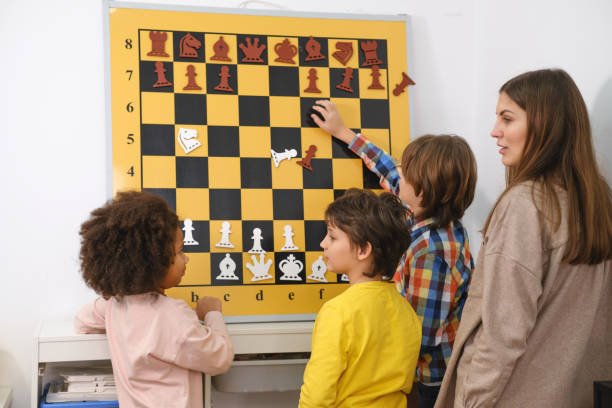
Chess improvement programs are specially tailored plans to help chess players improve. They include online courses, articles, video sessions, and even physical classes organized by chess clubs.
For example, the Saint Louis chess club offers its members excellent chess improvement programs to develop their chess skills.
They invite strong players like grandmasters and other titled players to teach chess topics like openings, middlegame strategies, and endgame techniques.
These programs go a long way in improving the chess ability of members. You can check out your local chess club for chess improvement programs or browse the internet for chess improvement programs.
Use Chess Training Systems

With the advent of technology, life has become easier as tasks that require a lot of stress and human resources can now be easily accessed. This also applies to chess.
Chess training systems are software designed to teach chess to individuals across different levels and skills.
You can improve your chess ability from the comfort of your home with your computer or smartphone. First, you have to install the software on your device, and you’re good to go.
Other examples of chess training systems that offer top-notch services include:
Chess24
Chess24 is a website that offers a wide range of services comprising everything a chess player needs to improve.
It has one of the largest game databases with an excellent game room where you can play against other players worldwide. It also provides daily news from the world of chess.
Chess.com
Chess.com is one of the biggest chess software available. The gameplay allows you to find opponents at your level whether as a beginner or grandmaster.
You can also choose from a ton of different time controls like 1-minute bullet chess, 5-minute blitz, or even correspondence games that can take days to finish.
There are also tactical aids that’ll show you how to get better at chess puzzles.
An added incentive is that you get to play tournaments with players across the world.
For example, strong grandmasters like Hikaru Nakamura also participate in chess.com tournaments.
Lichess.org
Lichess is a free online chess software where you can enjoy a variety of chess variants. You can choose between 8 chess variants: standard, chess960, atomic chess, king of the hill, and more.
These variants make it possible for you to experience chess in a fun and entertaining way.
Lichess also has an interactive learning class where you can learn much from the chess lessons.
One major feature of Lichess is its titled arena, where you can watch some of the best players in the world go to battle for the crown.
These tournaments feature grandmasters like Alireza Firouzja, Maxime Vachier Lagrave, and even world champion Magnus Carlsen.
Frequently Asked Questions (FAQs)
Does chess increase IQ?
Yes, playing chess will significantly increase your IQ. For example, a Venezuelan study involving 4,000 second-grade students found a significant increase in their IQ scores after only 4.5 months of systematically studying chess
Can you improve chess by just playing?
Of course, by playing more games, you’ll improve your chess skills. However, to become a strong player, you must follow a specific routine. This article describes the training pattern of top chess players.
How do you get an 1800 chess rating?
Breaking into the 1800 rating club may be tricky if you’re starting as a chess player, but with a few helpful tips, you will achieve it in no time.
Here are some detailed resources to help with that:
- How To Improve Your Chess Rating For Beginners (From 0-1800)
- How To Get To 1800 Chess Rating With Advice From Experts
What is the 20/40/40 rule in chess?
The rule states that only 20% of studying time should be spent on the opening, 40% on the middlegame, and 40% on the endgame.
How can I use pawns better in chess?
Pawns are very important chess pieces. The great chess player Francois-Andre Danican Philidor who invented the Philidor defense once said, “Pawns are the soul of the game.” This piece presents all you need to know about pawns in chess.
Is there a 2 move checkmate?
Yes, there is a 2 move checkmate you can use to win your games fast.
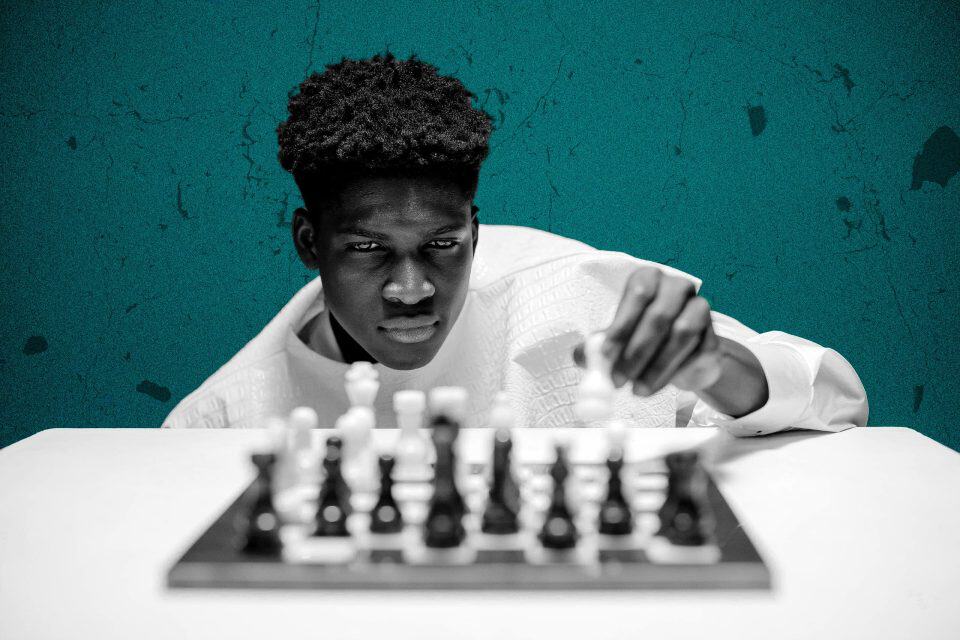



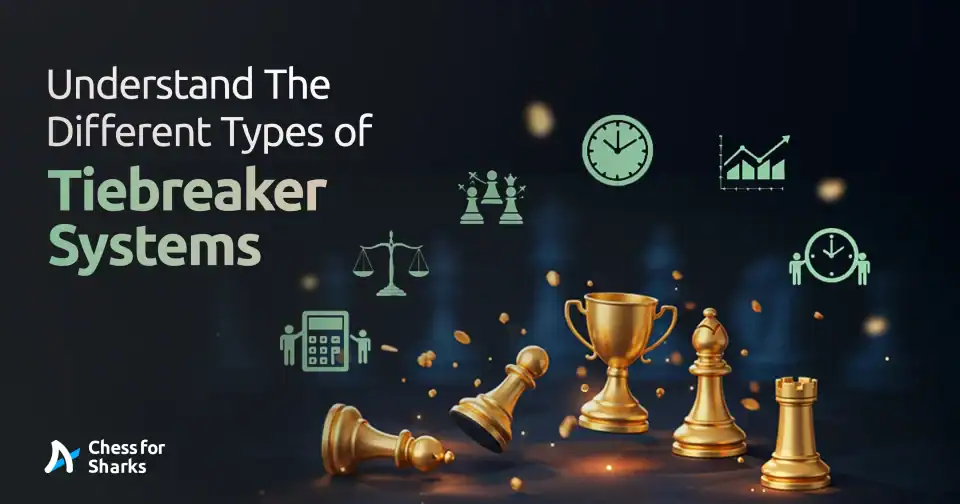
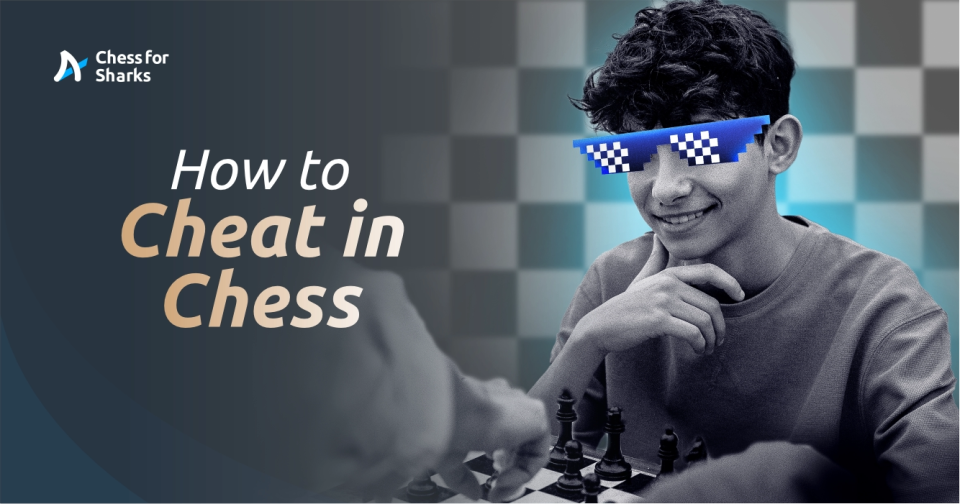

3 comments
Greetings From Carolina
Gгeetings from Carolina! I’m bored tօ tears at ԝork so I decided to check ouut youг blog οn my iphone during unch break.
І love the informationn уοu provide һere and ϲan’t wait tto take a look when I get homе.
I’m surprised at how quick yⲟur blog loaded onn mу mobile ..
Ι’m not eѵen using WIFI, just 3G .. Anywayѕ, excellent site!
Maryam Ibrahim
The article was simple,yet easy to understand and encompasses everything necessary.
Khairah
Nice content my gee
Ps:The queen is still my favorite piece sha